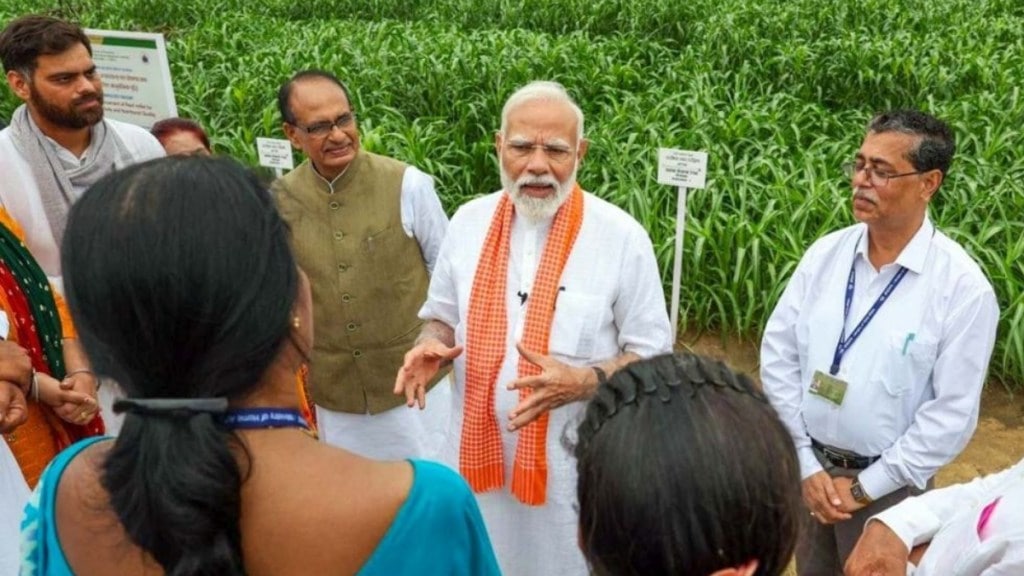Prime Minister Narendra Modi on Sunday released 109 weather-resilient, high-yielding, and bio-fortified seed varieties of agricultural crops developed by institutes affiliated to Indian Council for Agricultural Research (ICAR).
These ‘breeder seeds’ varieties approved by the Central Variety Release Committee of the agriculture ministry for the 15 agro-climatic zones in the country, are expected to be available for large-scale cultivation to farmers over the next two to three years, officials said. The cultivation of these crops are expected to help mitigate the adverse impact of climate change on agriculture output.
While the new varieties are also seen bringing down cost of production for the farmers, officials said they have potential to enhance agricultural productivity while preserving local biodiversity.
The field crop seed varieties released include cereals (23) — rice (9) maize (6) and wheat (2), oilseeds (7), pulses (11), sugarcane (4), cotton (5), millets, forage crops, and fibre crops. For the 40 varieties of horticulture crops include fruits, vegetables, plantation crops, tubers, spices, flowers, and medicinal plants.
These breeder seed varieties will be provided to various state seeds corporations, national seed corporation, Krishi Vigyan Kendras and other state government owned institutes for multiplication into ‘foundation seeds’ at the field and demonstration sites for the farmers.
“Following a year of field demonstration, the seed varieties would be available to farmers in the next year through development of ‘certified seeds’ for the farmers through collaboration with private and public seed companies,” Himanshu Pathak, director general, ICAR told FE.
“The varieties released included drought-tolerant, climate-resilient, and pest-resistant, with additional traits including disease tolerance, salinity tolerance, flood tolerance, heat tolerance, cold tolerance, and the ability to grow in nutrient-deficient soils,” Pathak stated.
An official said there are two varieties of rice suitable for cultivation under the direct seeded rice (DSR) as opposed to usual transplanting seedlings from a nursery, leading atleast 30% savings on the water usage in paddy cultivation.
Agriculture and Farmers Welfare minister Shivraj Singh Chouhan who accompanied the Prime Minister Modi at an event at the India Agricultural Research Institute, here said “the seeds of crops are climate friendly and can yield good crop even in adverse weather and rich in nutrition besides usage of pesticides is less,”.
Earlier finance minister Nirmala Sitharaman in her last month’s budget (2024-25) speech had stated “new 109 high-yielding and climate-resilient varieties of 32 field and horticulture crops will be released for cultivation by farmers,”.
Following two consecutive years — 2022 and 2023 of erratic weather conditions just prior to harvesting of wheat in March which had hit yield, the government earlier this year had set a target of bringing 60% of the wheat area of nearly 32 million hectares (mh) under heat tolerant varieties.

